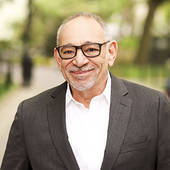The flip tax is a transfer fee that many new york coops and condos impose on shareholders and owners. In the early 80's when many rental buildings converted, huge profits were being made by former renters who bought their units at inside prices and then resold them. Called "flipping" The boards decided to impose the transfer fee and call it a flip tax on sellers to disuade flipping.
Due to high oil costs, insurance particularly terrorist insurance, neccessary repairs and increases in expenses many buildings need to build their reserve fund and are trying to impose flip taxes. In order for the flip tax to pass 2/3 of the shareholders have to vote in favor of it. It requires a quarum. An absent vote is a no vote. Condop buildings often have investor owners from out of town.
There are several ways they try to impose the flip tax. There are arguments on both sides for every type. In my opinion none are good for sellers. In my opinion it is better to help pay the buildings expenses when you live there and can enjoy the improvements and not when you sell. Why should a seller give a going away present to the coop because the coop is not fiscally disiplined.
It is an easy way to get 2% sometimes 3% of a unit's sale price. The average apartment in Manhattan is over $1 million. Do the math. Buildings have figured 5-10 transfers a year what a nice windfall for them.
- A percentage usually 2% but sometimes 3%
- A flat fee
- Percent of profit
- Tax per share Dollar amount per share
Management companies and boards lobby the shareholders why a flip tax is good. They argue if they have this reserve fund from the flip tax they won't have to raise maintenance or have asessments. Elederly people planning on leaving the apartment to their children don't care as that is an exemption. People who recently bought and have to be relocated feel it's unfair as they have not been there that long. Long time residents feel they stuck it out and have already paid for all assesments over the years.
The only real fair way I beleive is per share. The way the shares were allocated in the offering plan. So if you made renovations to improve your apartment and or hired a great real estate broker who sold for a higher price than other apartments with the same amount of shares you deserve that profit not the building.
Buildings need to be managed better. There are so many ways to cut back. Boards should be more accountable to shareholders. Costly mistakes the board made on renovations, refinancing at high rates with prepayment penalties etc. should not be the resposibility of a seller.
| Flip Tax, Updates and related posts |

Comments(29)